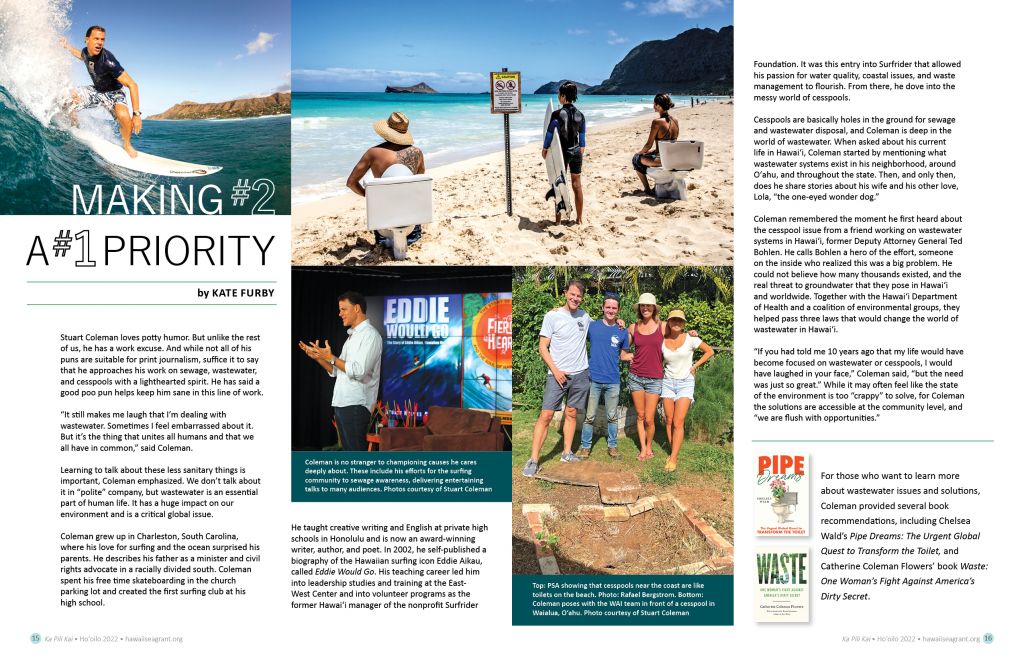Stuart Coleman loves potty humor. But unlike the rest of us, he has a work excuse. And while not all of his puns are suitable for print journalism, suffice it to say that he approaches his work on sewage, wastewater, and cesspools with a lighthearted spirit. He has said a good poo pun helps keep him sane in this line of work.
“It still makes me laugh that I’m dealing with wastewater. Sometimes I feel embarrassed about it. But it’s the thing that unites all humans and that we all have in common,” said Coleman.
Learning to talk about these less sanitary things is important, Coleman emphasized. We don’t talk about it in “polite” company, but wastewater is an essential part of human life. It has a huge impact on our environment and is a critical global issue.
Coleman grew up in Charleston, South Carolina, where his love for surfing and the ocean surprised his parents. He describes his father as a minister and civil rights advocate in a racially divided south. Coleman spent his free time skateboarding in the church parking lot and created the first surfing club at his high school.
He taught creative writing and English at private high schools in Honolulu and is now an award-winning writer, author, and poet. In 2002, he self-published a biography of the Hawaiian surfing icon Eddie Aikau, called Eddie Would Go. His teaching career led him into leadership studies and training at the East-West Center and into volunteer programs as the former Hawai‘i manager of the nonprofit Surfrider Foundation. It was this entry into Surfrider that allowed his passion for water quality, coastal issues, and waste management to flourish. From there, he dove into the messy world of cesspools.
Cesspools are basically holes in the ground for sewage and wastewater disposal, and Coleman is deep in the world of wastewater. When asked about his current life in Hawaiʻi, Coleman started by mentioning what wastewater systems exist in his neighborhood, around Oʻahu, and throughout the state. Then, and only then, does he share stories about his wife and his other love, Lola, “the one-eyed wonder dog.”
Coleman remembered the moment he first heard about the cesspool issue from a friend working on wastewater systems in Hawaiʻi, former Deputy Attorney General Ted Bohlen. He calls Bohlen a hero of the effort, someone on the inside who realized this was a big problem. He could not believe how many thousands existed, and the real threat to groundwater that they pose in Hawaiʻi and worldwide. Together with the Hawai‘i Department of Health and a coalition of environmental groups, they helped pass three laws that would change the world of wastewater in Hawaiʻi.
“If you had told me 10 years ago that my life would have become focused on wastewater or cesspools, I would have laughed in your face,” Coleman said, “but the need was just so great.” While it may often feel like the state of the environment is too “crappy” to solve, for Coleman the solutions are accessible at the community level, and “we are flush with opportunities.”
Browse Ka Pili Kai issues HERE


